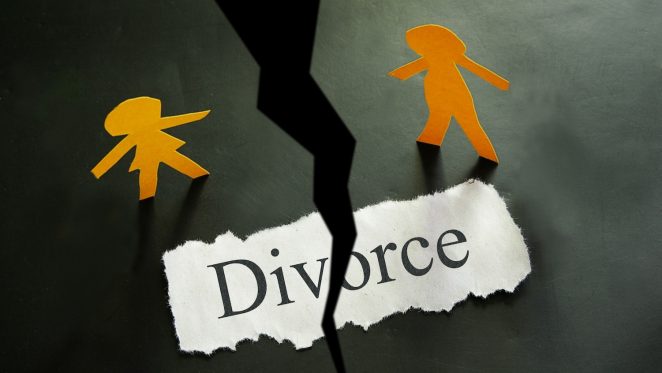When a couple is unhappy for a longer time, they choose to divorce. Divorce is, ultimately, the end move when two people don’t love each other anymore.
There are many factors that impact a couple’s decision to divorce and we won’t get into that. But the main thing here is that this process can be both emotionally and physically draining for both people. The effects are even more damning if the couple has children.
Different people react differently when the time for separation comes. Some can develop certain disorders and illnesses such as anxiety, depression, ailments, panic attacks, etc. Others cope with it better, but no one leaves a divorce without any scars.
When the time for negotiation comes, anger and disappointment are the two feelings that dominate. Because of it, the two individuals find it harder to negotiate key issues such as child custody, divorce property, various support issues, etc.
Apart from seeking emotional support from friends and family, the two individuals also employ professional advice on how to hasten the process.
But, there is yet another thing that the individuals can do. Namely, not everyone feels the same way, and not everyone wishes to tarnish each other through a divorce trial. So what is the solution for it? The solution comes in the form of divorce mediation.
What is Mediation and How to Choose a Mediator?

Mediation is essentially an alternative to divorce court settling. A mediator is a person employed by both individuals who are there to help both parties settle and resolve their issues. This person is by no means employed to solve their marriage problems, but to help settle any divorce issues that have arisen.
This person has neither power nor rights to determine who is right or wrong. A mediator is there to help make sane comments and suggestions so that both parties can solve their problems and come to an agreement.
Each session is held at the person’s office. Generally, is either of the parties has a family law attorney, it is advised that the lawyer doesn’t attend.
This matter isn’t one of legal requirements, but one of moral. Mediation is done if both parties have hit a dead-end in negotiations and if their relationship is beyond repair.
Since this process is supposed to make both parties come to a conclusion, it might not be the best course of action for everyone. With that said, it is the best course of action for those with an open mind and those that don’t want a lengthy divorce court.
On the subject of payment, we mention that each session is split by both individuals. Each person is asked to pay half of the price, but variations can be decided between both parties. One session is enough for both parties to make a decision, but extra sessions can be scheduled if they cannot come to a conclusion.
For more information about this process, and if you’re interested in hiring such a person, then we suggest you visit O’Sullivan mediation.
How is the Settlement Agreed?

When both parties reach an agreement on a settlement, then the process needs to be finalized. This is done so that neither wastes their money or time in a court.
The settlement can be drawn by either party’s attorney, or by the mediator himself. If both parties have entered the talks with their own attorney, then they can review the settlement document and finalize the agreement.
Once everyone signs the settlement document, it is the mediator’s job to hand it over to the court for further inspections, finalizations, and as part of the divorce decree.
With this last final act, both individuals will be considered divorced.
Why Is This the Best Option?

Judging by everything we’ve said, many couples choose to go down this path because of a couple of things. First off, the process of mediation is quicker. Secondly, it is less expensive since it involved one or two sessions, unlike the court where the case can drag a long time. And lastly, the process is held in a private conference room where other people are forbidden from witnessing or entering.
This option is better because neither party needs to speak before a judge or have to explain personal finances or personal life. Also, your feelings and issues will be discussed between you, your ex-spouse, and the mediator. Everything said during those sessions is bound by law to stay in private and fully concealed from the public.
Divorce cases in courtrooms are public, on public records, and anyone can enter, sit down, and listen to your problems, issues, private or family life.
Furthermore, mediation is also recommended by the divorce court itself. This might come at a surprise, but no one wishes to see two individuals fight for a settlement in a private court session.
Not only that, but a third party settlement also frees up the divorce court calendar, making it available for other pressing matters that involve domestic violence, restraining orders, and any of the kind.
So, if you feel as your marriage is over and you both need to move on, a better way to deal with reaching a settlement is to hire a mediator.
Conclusion

Based on everything we talked about, mediation is much better and much more affordable than a divorce court appeal. It’s the best way for both parties to settle their disputes, and to settle for an agreement. Each session is private, away from the public, so you won’t get embarrassed by random people listening to your divorce case.
Furthermore, mediation is better for the kids, as they won’t’ have to sit in a courtroom listening to their parents battling. Divorces have been known to take its toll on the kids and pets, and mediation keeps the children away from any courtrooms.
The bottom line with mediation is that the process is quicker, less expensive, and private. The process is also advised by the divorce court and every other official body.
 Vermont Republic Second Vermont Republic
Vermont Republic Second Vermont Republic




